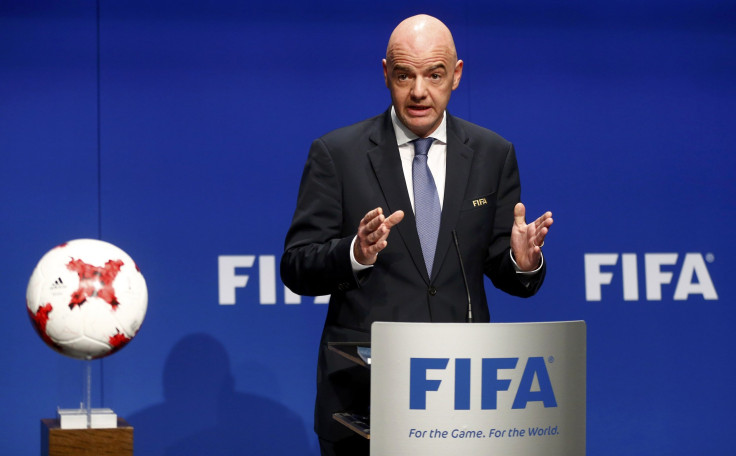World Cup Expansion To 48 Teams: How Will Qualifying, Groups, Elimination Rounds Work With So Many Countries?

If the United States does earn the right to host the World Cup in 2026, as many expect, then it will be taking on a tournament twice the size it was when last housing it in 1994. FIFA’s governing council unanimously approved a plan in Zurich Tuesday to expand the organization’s flagship event to 48 teams for 2026.
The format had remained unchanged at 32 teams since expanding from 24 teams for the 1998 World Cup.
The overhaul was the brainchild of FIFA president Gianni Infantino, who made the World Cup’s expansion his key campaign pledge when he ran to replace disgraced former president Sepp Blatter in 2016. And, in similar vein to his predecessor, the move is seen as a way to sure up support from some of the smaller national associations across the globe.
It is also set to provide a huge boost to FIFA’s coffers. A 48-team World Cup is anticipated to generate up to $1 billion in extra revenue, FIFA estimated.
"It's not at all a money and power grab, it is the opposite, it's a football decision," Infantino insisted.
Certainly, the changes offer many more teams a route to soccer’s biggest event. And it is Africa and Asia, two continents that have previously struggled to make their mark on the World Cup, which stand to benefit most.
An official decision on how the 16 extra places will be allocated won’t be made until May. Yet it is widely anticipated that Africa will earn nine spots, up from its current five, and Asia’s contingent will also nearly double. Currently, Asia receives four places as well as having another team going into an intercontinental playoff, but that will now rise to eight and an additional playoff berth.
Concacaf, the North, Central America and Caribbean confederation that includes the U.S., will also reap the benefits. Its number of places will go up to six and a playoff berth, up from its current three and a half.
Fifa members close to consensus on distribution of new World Cup places - final decision on that likely in May pic.twitter.com/h4MhRpIpQZ
— Martyn Ziegler (@martynziegler) January 10, 2017
"We are in the 21st century and we have to shape the football World Cup of the 21st century," Infantino said after the council’s meeting. "Football is more than just Europe and South America. Football is global."
The issue is more complex in South America, where four of its 10 teams already earn a World Cup berth with another going into a playoff. That number will go up to six, with even members of its confederation, Conmebol, warning that providing any more places would render its qualification campaign essentially meaningless.
In part as a way of addressing that issue, a merger between Conmebol and Concacaf has even been suggested.
When it comes to the tournament itself, Infantino has been keen to stress that the number of games that the eventual winner will have to play will be unchanged from its current seven and the length of the tournament will also remain the same at 32 days. The FIFA president hopes that provision will appease the powerful European clubs, which have already voiced their opposition to the World Cup’s expansion.
The total number of games, however, will rise from 64 to 80. In a revision to the original plan of having a "play-in round" for 32 teams to join the top-ranked 16 teams, FIFA is now set on having 16 groups of three teams. Each team will play each other once with the top two going on to a last-32 knockout stage.
The current format, which will remain in place for next year’s World Cup in Russia and the 2022 edition in Qatar, features eight groups of four teams with the top two teams from reach section advancing to a last-16 knockout round.
© Copyright IBTimes 2024. All rights reserved.




















